Since starting my blog a little over five years ago, I’ve been fortunate enough to meet some pretty incredible people online. One of those people is Kelly Narowski. She is a manual wheelchair user from the USA and has visited 46 countries, and even spent some time living in Europe. From paragliding over Switzerland to riding a camel in the Sahara Desert, her adventures are so much fun to keep up with online and I’m thrilled to have her be a part of my Wheelie Inspiring Interview Series. Without further ado, meet the fantastic Kelly Narowski –
1. Please tell us about yourself and how you became a wheelchair user.
I am a professional speaker, disability rights advocate, ADA Compliance Expert, military spouse, animal lover and avid traveler. I’m originally from and currently living in the Kansas City area, but have moved around frequently. Immediately after graduating from college, my adventurous spirit inspired me to just pick up and move to Santa Barbara, California on my own. A few months after arriving in a place I perceived as paradise, I was involved in a serious car crash and sustained a complete T6 spinal cord injury. As a result, I was permanently paralyzed from the chest down and have been using a manual wheelchair full-time for the past twenty years. Right after my injury occurred, I wasn’t sure what I was going to do for work. Having always been consumed by wanderlust, an open corporate travel agent position seemed very interesting to me, so I applied and was thrilled to get the job!
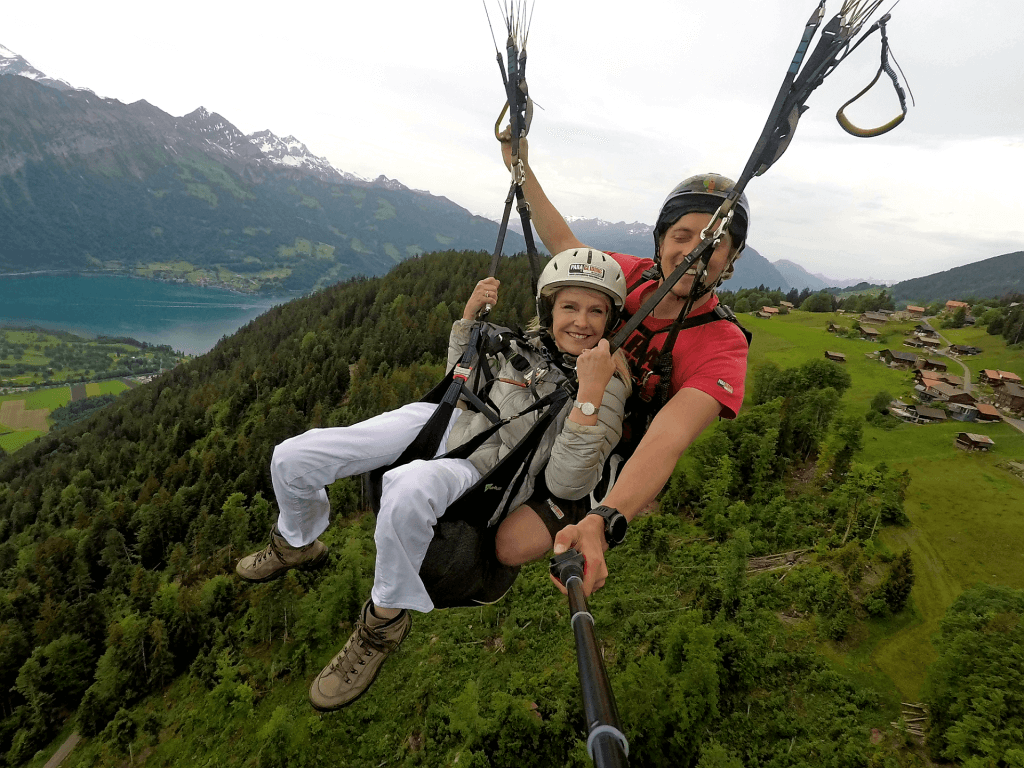
Kelly paragliding in Switzerland
2. How did your passion for traveling begin?
I must have been bitten by the travel bug when I was as a baby, because I can’t remember a time when I didn’t love to go on trips! My first memories of travel are at the age of 4, being at Six Flags in Atlanta, and at age 5 being at Fort Walton Beach, Florida. One of my favorite early trips was to Washington DC. Travel memories like those are still quite vivid because childhood vacations were so exciting to me!
3. What is the most wheelchair friendly place that you have been to? What made it so accessible?
I’ve visited 46 countries on 5 continents so far, as well as 40 states, and have studied both domestic and international disability rights law for several years, so there’s no doubt in my mind that the most accessible nation overall is the United States. The United States is where the disability rights movement began, so it stands to reason that there are more far-reaching, enforceable pieces of legislation in the USA related to accessibility for people with disabilities than anywhere else in the world. One of my German friends who has visited the USA a few times calls it “an accessibility utopia.” After living in Europe for three years, I can definitely see her point, but I believe it’s because the American access laws have teeth. While most nations have vague manifestos or laws with little to no enforcement mechanisms, the U.S. has the most comprehensive piece of disability rights legislation in the world- the Americans with Disabilities Act (ADA)- and in my view, the U.S. is accessible mostly because of Titles II and III of the ADA. These titles mandate access in state and local entities (e.g., sidewalks) and public accommodations (e.g., restaurants, stores). Further, the United States has disability rights legislation that applies to access for entities receiving federal dollars (e.g., national parks, museums), as well as policy covering air travel for people with disabilities. While there are undoubtedly improvements to be made, having all these laws is quite a motivator for the movers and shakers to create accessible environments in communities. Having lived in the country most of my life, I don’t believe compliance with U.S. accessibility legislation involves a strong spirit of inclusion. The reality is, businesses and towns don’t want to be sued, and they don’t want to be harassed by the Department of Justice, so they usually comply. Outside the United States, Ireland has been my biggest surprise. Overall, it’s very accessible and the Irish people are among the friendliest, most inclusive people in the world. As far as accessible cities outside the U.S., I can recommend: Sydney, Singapore, Berlin, Barcelona and London. Paris is also very doable. A 2004 vacation in Paris was actually my first solo international trip. I had only been a wheelchair user for a short time, so it ended up being the most liberating experience of my life. I realized then that I could still do (almost) anything I wanted.
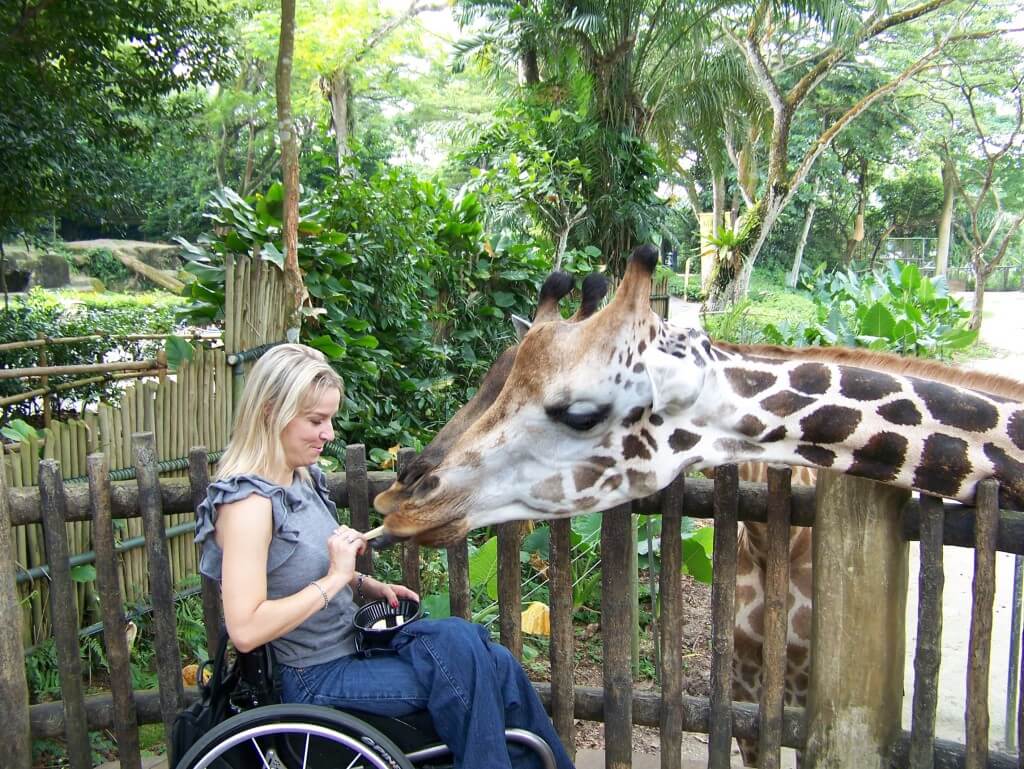
Kelly with a giraffe in Singapore
4. What is the least accessible place that you’ve ever visited?
As far as countries go, I’d say it’s probably a tie between Morocco and Romania. However, I’m glad I visited both. Morocco was one of my all time favorite trips and certainly the most unique. The culture, the food, the people, and of course- the camels! As far as towns go, I must mention Česky Krumlov, a picturesque medieval town in the Czech Republic. It was extremely challenging to get around as a wheelchair user, even traveling with someone. Also, I found Macau, “the Las Vegas of Asia,” to be very inaccessible.

With a camel in Morocco
5. What kind of problems have you came across while traveling in a wheelchair? How did you overcome them?
Oh I think any of us well-traveled wheelchair users could write an entire book of stories, or should I say “fiascos,” regarding this topic! In the interest of length, though, I’ll just give a couple examples. Most people who have spinal cord injuries have no bladder control, and I’m a member of that group. I had an “accident” on a plane and all of a sudden there was pee all over the aisle chair. There was no hiding it. It was one of the most undignified situations I’ve ever been in, in public. It’s important to remain calm in situations like this and just do the best you can. I apologized, wiped it up, and apologized again. Once I got to baggage claim, I found out my luggage was lost. I didn’t receive it for three days. You really have to go from a “one day at a time” mentality to a “one moment at a time” mindset on trips that are going wrong. Sometimes travel is stressful and once in a while travel is very stressful. When you’re dealing with the latter, it’s best to take things slowly and concentrate on solving one problem at a time. I think knowing how to practice effective stress management is an absolute must for traveling wheelchair users. Another problem I had once was upon arrival at a rental car agency in Columbia, South Carolina. When I got into my rental car, I quickly realized there were no hand controls installed. I had ordered hand controls and gotten them guaranteed weeks beforehand. After rolling back to the desk, the lady who worked there said, “We don’t do hand controls here.” I had the number to the corporate special services desk with me, so I called and they ended up agreeing to pay for a cab to my hotel and they had a car with hand controls brought to me the next day. It’s very important to know your legal rights. It greatly helps in situations like that, and it’s the same thing with hotel front desk clerks who give your guaranteed accessible room away to another guest before your arrival. Many people don’t realize that in the U.S. if the hotel doesn’t have an accessible room and you have a guaranteed reservation for an accessible room, the hotel not only has to find you an accessible room at a different hotel, they have to pay for it.
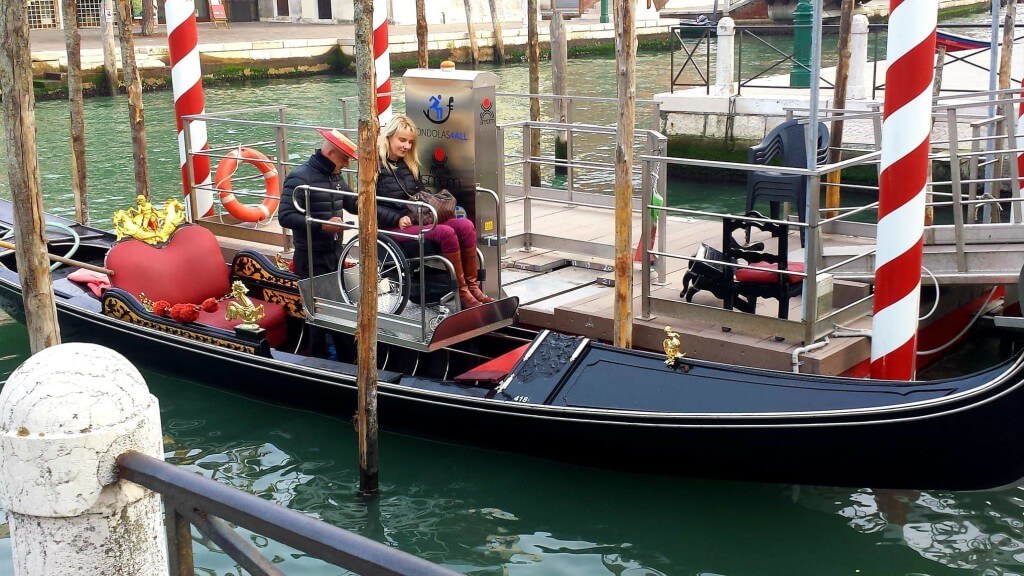
Kelly riding an accessible gondola in Venice, Italy
6. What are some of the top items on your bucket list?
My dream trip is to take an African safari. If I were allowed to go to only one more country in my lifetime, I’d choose one of the countries in central or southern Africa and go see the animals. I’d also like to visit a South American country like Argentina or Ecuador. Other than that, after I reach my “50 by 50” goal in February, it’s all about repeats. Going back to the places I love and didn’t get enough of the first time- places such as Scotland, Portugal, Croatia and New Zealand. In a few years, I’d like to concentrate on the places I’ve missed in the United States, especially some of the national parks in the West. The only cities I haven’t visited in the U.S. that I’d like to get to are Portland, Oregon and Philadelphia, Pennsylvania.
7. Do you have any tips for other wheelchair users that might think traveling is not possible?
The first thing I want to say is, traveling as a wheelchair user is definitely possible! Travel just involves a lot more planning than it does for people without mobility impairments. Do your research. Join Facebook groups for traveling wheelchair users. Read travel blogs written by wheelchair users. Ask wheelchair users you know questions about destinations, airlines, hotels and other details. I get an average of a couple inquiries per week via Facebook Messenger- just fellow chair users asking about a cruise, accessibility in a European city, or seating on a particular aircraft. I’m always happy to answer those types of questions. Part of it is that I love seeing other wheelchair users travel and part of it is that I feel the need to give back. A great deal of the travel I’ve done in the past few years was made a lot easier by those who traveled before me, wheelchair users who visited those destinations and wrote about them, detailing what’s accessible and what’s not. Their writings saved me a lot of trial and error and gave me more confidence to visit the places I was interested in. Another tip is once you’ve done all the planning you possibly can, it’s important to “let go” and do your best to relax. Things will go wrong once in a while. Plan on it. My last tip is: know your legal rights. For instance, if you’re new to the travel world and traveling in the U.S, print out the Air Carrier Access Act and read that puppy. I know it’s forty-something pages long (be thankful, the EU’s equivalent is only around ten pages, which translates to less regulations).
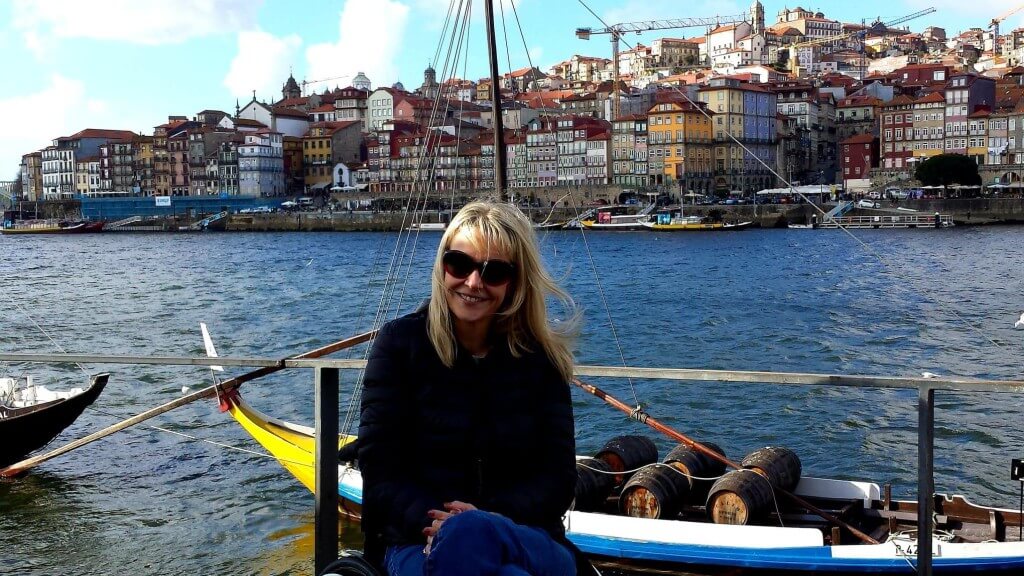
Kelly in Porto
8. Most importantly, where to next?
San Antonio next month (part work, part play). A 9 day trip to Iceland in September! And a Panama Canal cruise in February.
Check out Kelly’s website by clicking here.
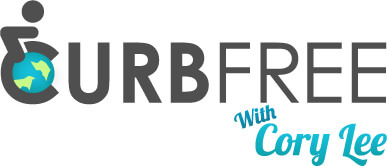
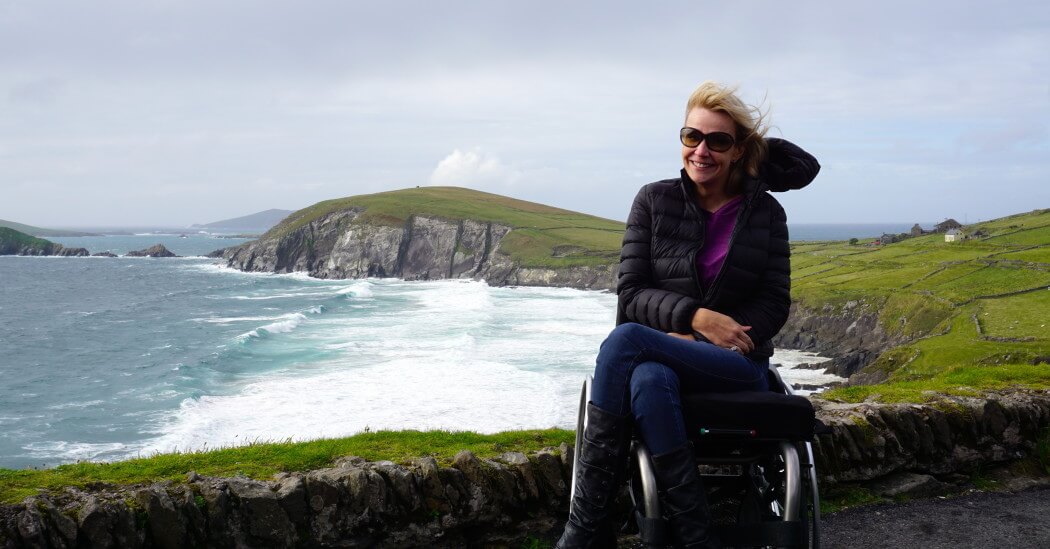
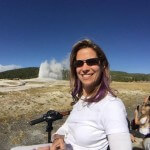




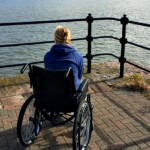
Read the full interview, such an inspiration! It’s a shame for me not visiting that much places.
The Mama Pirate recently posted…Things to do in El Nido Palawan Philippines